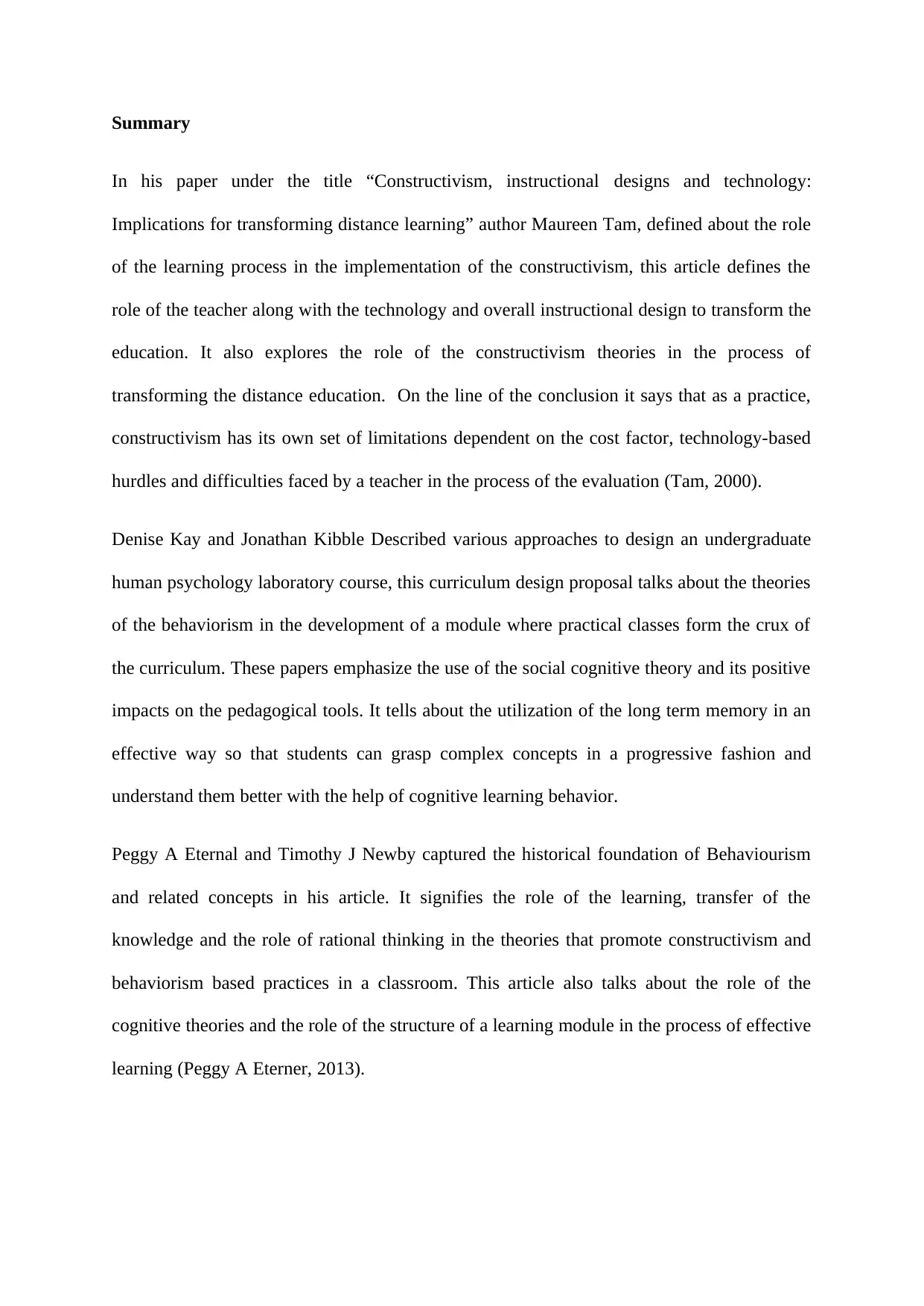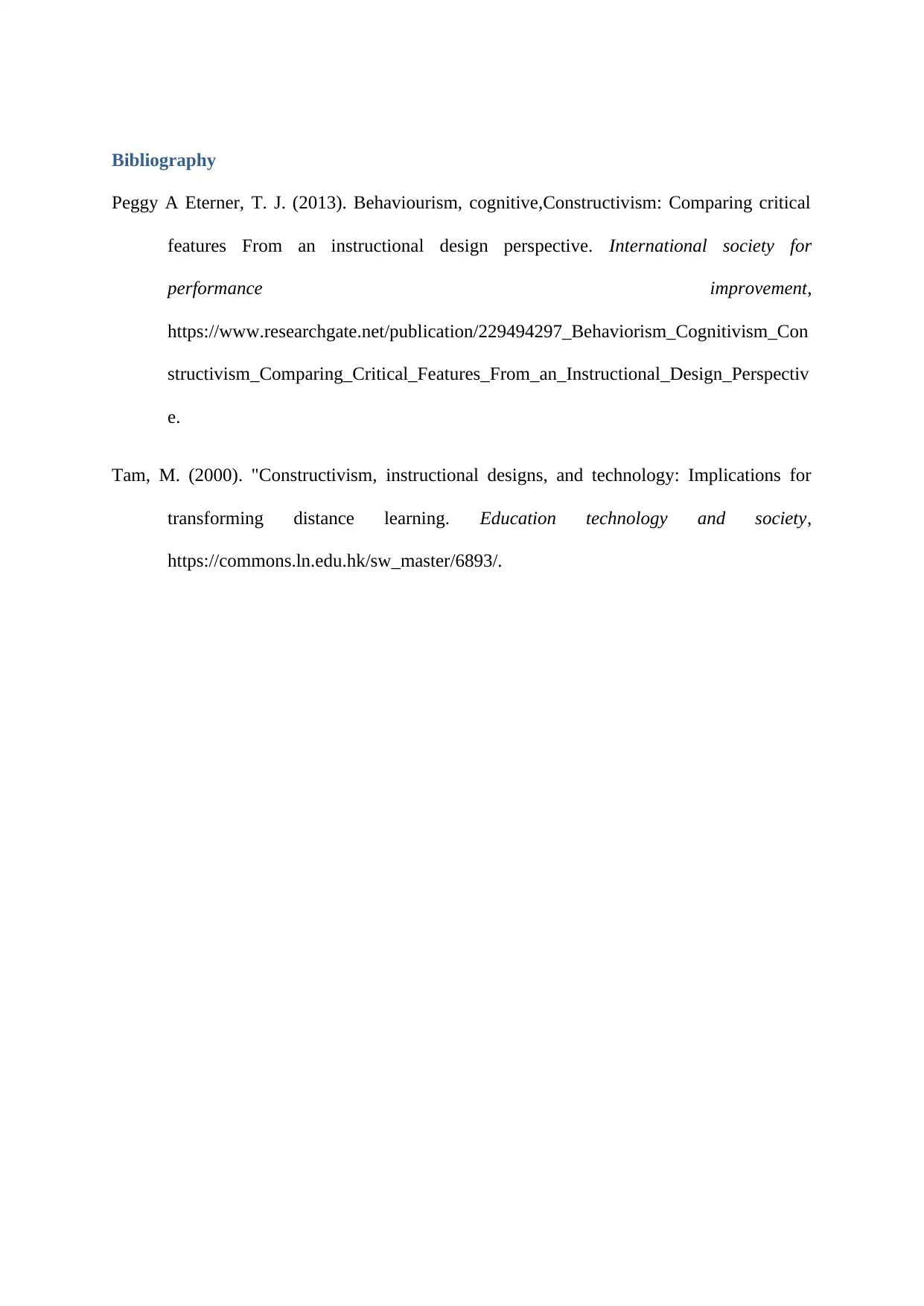Report: Constructivism, Distance Learning, and Behaviorism Analysis
VerifiedAdded on 2022/01/04
|2
|380
|19
Report
AI Summary
This report examines the concepts of constructivism, distance learning, and behaviorism within the context of education. It analyzes the implications of constructivism, focusing on the role of technology and instructional design in transforming distance learning, as well as the limitations and challenges of its implementation. The report also explores the application of behaviorism, particularly in the design of undergraduate psychology courses, emphasizing the use of social cognitive theory and its impact on pedagogical tools, including the utilization of long-term memory. The report also presents an overview of the historical foundations of behaviorism and related concepts, focusing on the role of learning, knowledge transfer, and the role of rational thinking, including the impact of cognitive theories and the structure of a learning module in effective learning. The report draws on the work of several researchers to provide a comprehensive understanding of these concepts.
1 out of 2








![[object Object]](/_next/static/media/star-bottom.7253800d.svg)